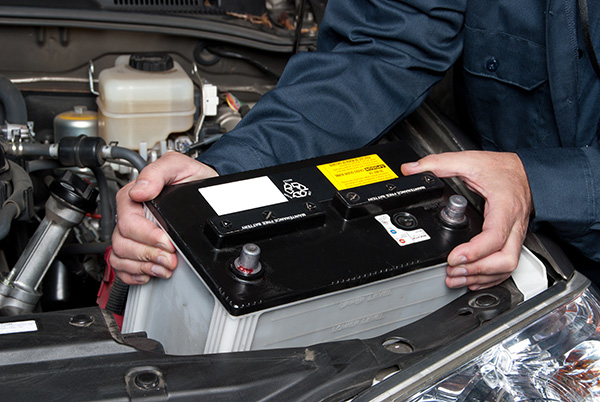
Your car battery is responsible for starting your engine and powering critical electrical components when the engine isn’t running. While it might seem like a simple component, a failing battery can leave you stranded at the worst possible time. Knowing when it’s time to replace your battery can save you from unexpected breakdowns and costly towing. Let’s explore the key signs and factors that help you determine when it’s time for a new battery.
Typical Battery Lifespan
On average, car batteries last between three to five years. However, factors like climate, driving habits, and electrical load can shorten or extend this timeline.
Frequent short trips, extreme heat or cold, and heavy use of electronic accessories all put additional stress on your battery.
Slow Engine Crank
One of the earliest and most noticeable signs of a weakening battery is a slow or labored engine crank when starting the vehicle. If your car takes longer than usual to start or you hear a sluggish turning sound, your battery might not be delivering sufficient power.
Dashboard Warning Lights
Many vehicles have a battery-shaped warning light that appears on the dashboard when there’s an issue with the charging system.
While this could indicate a problem with the alternator or another electrical component, it often means the battery is struggling to hold a charge.
Dimming Lights and Electrical Issues
If you notice your headlights dimming, your interior lights flickering, or your radio acting up, these are all potential signs of a weakening battery.
A healthy battery provides consistent voltage to your vehicle’s electrical system. Fluctuating power signals that the battery might not be holding a steady charge.
Swollen Battery Case
Exposure to extreme heat can cause a battery case to swell or bulge. A swollen case indicates that the battery’s internal components have been damaged and can no longer function properly.
If you see this, it’s essential to replace the battery immediately to avoid leaks or further electrical problems.
Corrosion on Terminals
Corrosion on battery terminals — typically a white or bluish powder — can interfere with the battery’s connection to the car. While cleaning corrosion can sometimes restore function, repeated buildup often indicates that a battery is nearing the end of its life.
Old Age Alone
Even if your battery seems to be performing well, age is an important factor. Batteries lose capacity over time, and an older battery is more likely to fail suddenly.
If your battery is more than five years old, it’s wise to have it tested and consider replacement before it leaves you stranded.
The Value of Battery Testing
Most auto repair shops offer quick battery tests that measure voltage, cold-cranking amps, and overall health.
Regular testing helps you catch a failing battery before it becomes a bigger problem, giving you time to plan a replacement rather than deal with an emergency.
Importance of Quality Replacement
When it’s time to replace your battery, choosing a high-quality option designed for your vehicle ensures reliable performance. A properly sized battery with the correct power rating supports your car’s electrical demands and starts the engine reliably, even in extreme weather conditions.
Trust Complete Automotive Repair Specialists in Cromwell, CT
At Complete Automotive Repair Specialists in Cromwell, CT, we know how critical a dependable battery is for your vehicle’s performance and your peace of mind. Our technicians can perform thorough battery tests and inspections to determine whether it’s time for a replacement.
We’ll recommend the best battery for your car and professionally install it, ensuring your vehicle starts reliably and all electrical systems function properly. Don’t wait for a surprise breakdown — schedule a battery check with us today and stay ahead of potential problems.